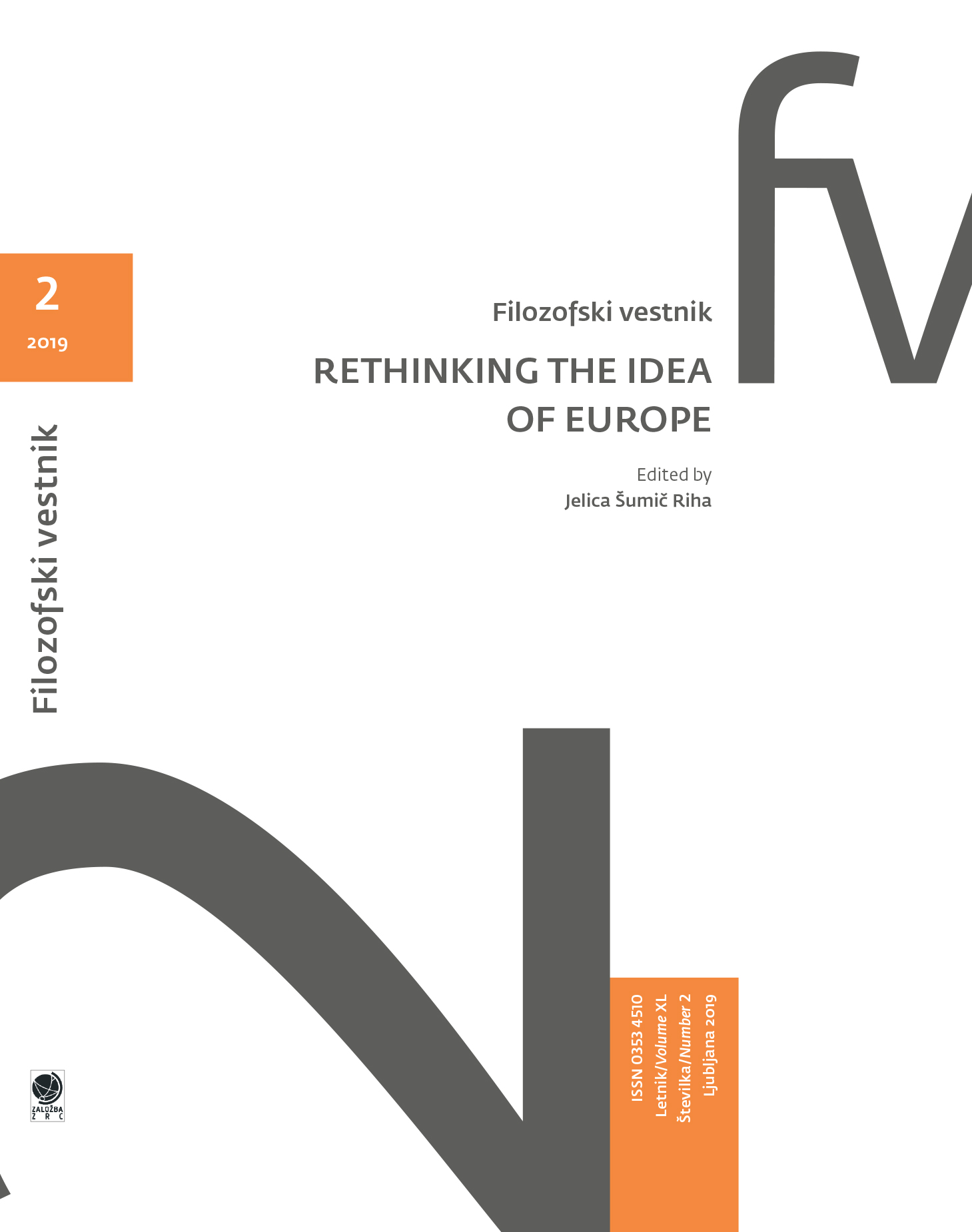Država beguncev? Agamben in prihodnost Evrope
Ključne besede:
nacionalna država, državljanstvo, begunci, subjektivna destitucija, potlačitev, vrnitev potlačenega, zunaj-teritorialnost, drugi prostor, EvropaPovzetek
Avtor v članku nadaljuje nedavno začeto razpravo o predlogu Giorgia Agambena, da je zahodno politično filozofijo treba na novo premisliti s stališča figure begunca. V prvem delu avtor kritično povzame Agambenovo kritiko biopolitičnih konceptov človekovih pravic, državljanstva in nacionalne države, in sicer tako, da te koncepte postavi v perspektivo freudovsko-lacanovske teorije potlačitve. Če velja, kot trdi Agamben, da je golo življenje »izginevajoča predpostavka« v konstituciji državljanstva in nacionalne države, potem ga lahko razumemo tudi kot prvotno potlačeni označevalec v Freudovem smislu, ki ga označevalec »državljan« reprezentira v pravno-političnem redu nacionalne države. V tem kontekstu se begunci oziroma ljudje brez statusa (stateless) pojavijo na prizorišču prav kot »vrnitev potlačenega«, saj utelešajo afektivni nadomestek prvotno potlačenega označevalca. Izhajajoč iz tega preliminarnega pregleda, članek v drugem delu analizira Agambenovo idejo »ateritorialnosti« oziroma »zunaj-teritorialnosti« države, ki ustreza na figuri begunca utemeljeni politični skupnosti. Prav v temu deteritorializiranemu oziroma ukrivljenemu topološkemu prostoru lahko pride do subjektivne destitucije nacije, in sicer na način razveze biopolitičnega vozla država-nacija-teritorij. Članek sklene s predlogom, da se Evropa lahko oziroma mora rekonstituirati prav skozi tako artikulirano subjektivno destitucijo Evropskih nacij.
Prenosi
Prenosi
Objavljeno
Kako citirati
Številka
Rubrike
Licenca
Avtorji jamčijo, da je delo njihova avtorska stvaritev, da v njem niso kršene avtorske pravice tretjih oseb ali kake druge pravice. V primeru zahtevkov tretjih oseb se avtorji zavezujejo, da bodo varovali interese založnika ter da bodo povrnili morebitno škodo.
Podrobneje v rubriki: Prispevki





